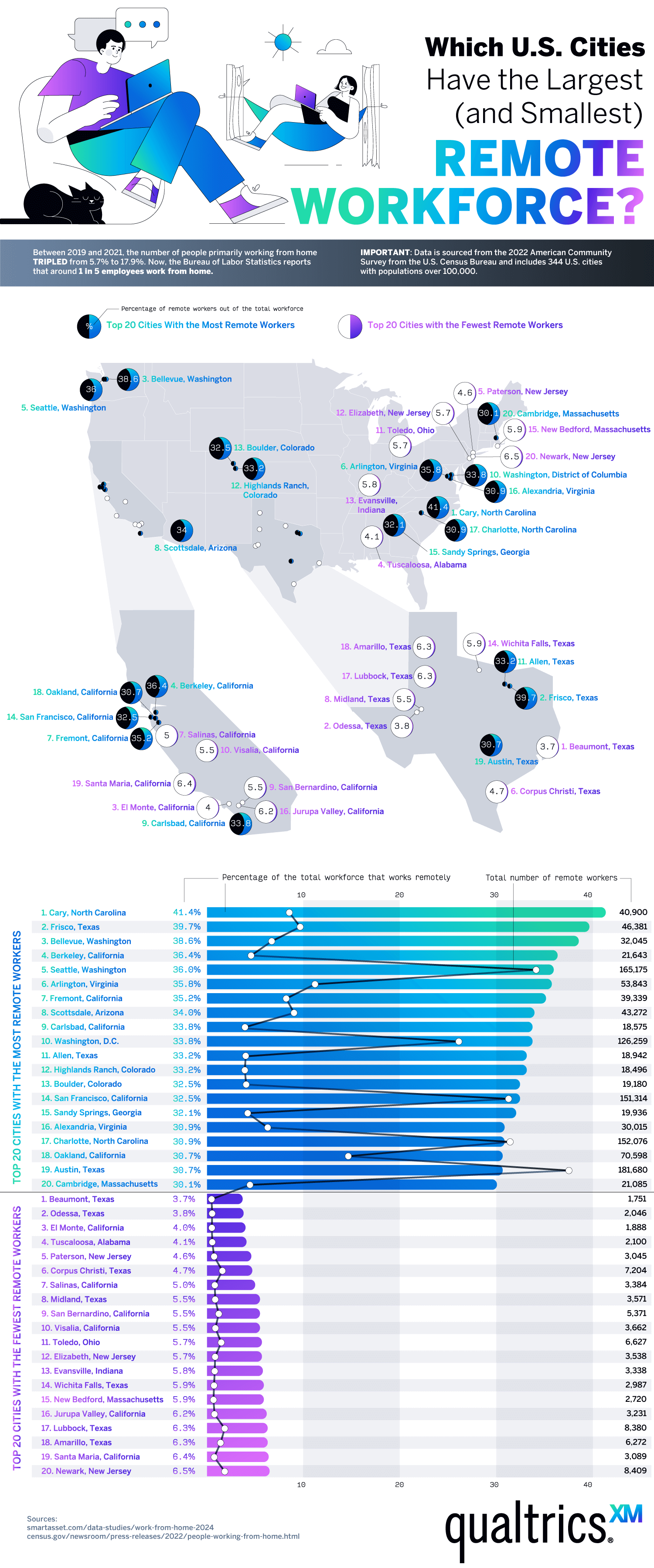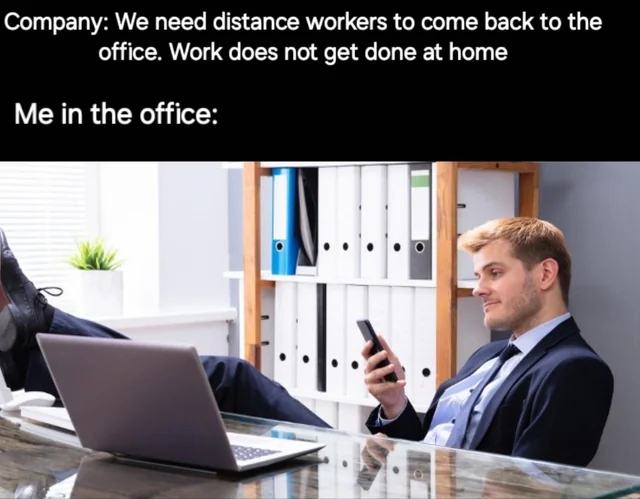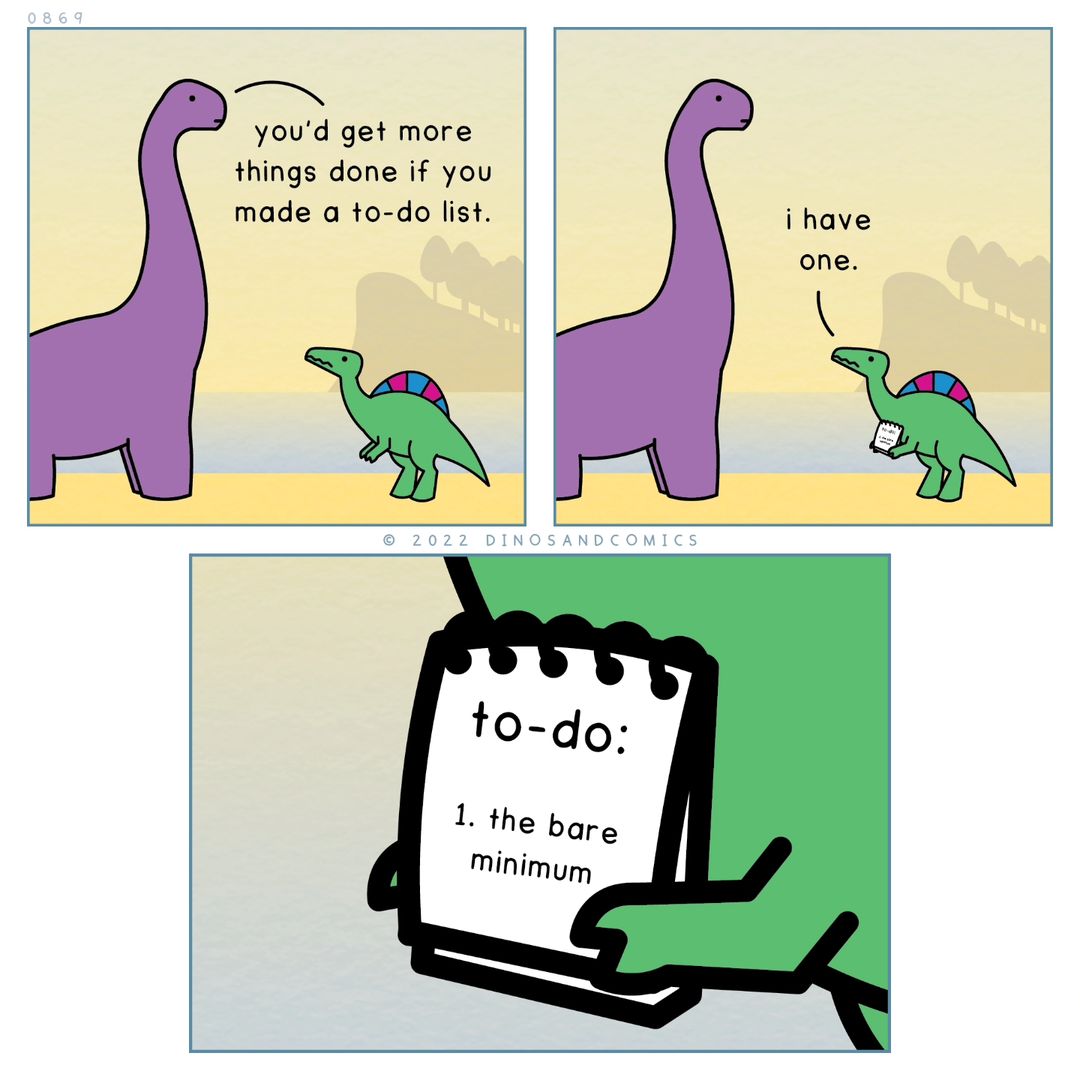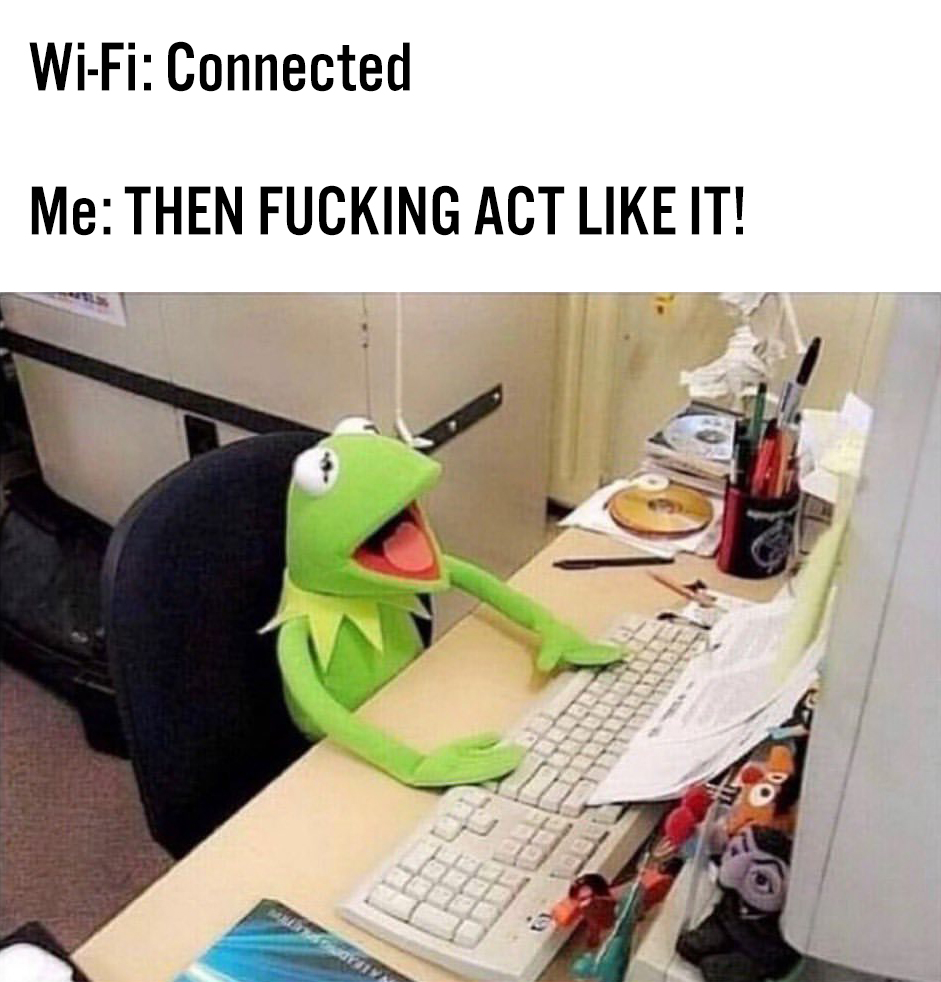Exactly
Interesting…
Also Monday
Monday
Monday
Fuck This Bitch

-
- Jamie Dimon thinks remote work doesn't cut it for all roles.
- The JPMorgan CEO said he understands why an employee may not want to spend time on a long commute.
- But it "doesn't mean they need to have a job there either," he told The Economist in an interview.
This, we know: JPMorgan CEO Jamie Dimon is an outspoken advocate of the return to office movement. He has held his stance, despite pushback from his staffers.
He is now doubling down on his stance against remote work, saying employees can take up another job if they don't like the commute.
"I completely understand why someone doesn't want to commute an hour and a half every day, totally got it. Doesn't mean they have to have a job here either," Dimon told The Economist in a wide-ranging interview released Tuesday.
Dimon told the publication that some roles at JPMorgan can be hybrid or remote, but such arrangements just do not cut it for some positions.
"It doesn't work for younger kids in apprenticeships, it doesn't really work for creativity and spontaneity, it doesn't really work for management teams," he told The Economist.
"There are real flaws," he added.
Dimon told the media outlet he wasn't opposed to remote work if it works, but he doesn't mind getting rid of it if it doesn't work.
"We're not going to make that decision because we're pandering to employees — that is not the way to build a great company," he said.
He is particularly opposed to those in leadership roles not being around in the office.
"I don't know how you can be a leader and not be completely accessible to your people. I do not believe you can be a leader and not be accessible to your people," he told The Economist.
In January, he told CNBC in an interview that while remote work can work for jobs like coding, those in research, and women in caregiving roles, the arrangement doesn't apply to all roles.
Dimon's comments came amid a furious debate about the future of remote work as the world exits from the COVID-19 pandemic.
The future of where and how employees work could have a huge impact on the economy, including in the real-estate sector.
Lower demand for office space due to remote work could wipe out $800 billion real-estate value across major cities globally, according to a McKinsey report released on Thursday.
Can You Blame Them?
From WSJ:
A New CEO Says Employees Can't Work Remotely After All, and They Revolt
After insurer Farmers Group told staff last year they would be remote, some sold cars or moved to new cities

Farmers Group Chief Executive Raul Vargas sees in-office work as a driver of collaboration, creativity and innovation. Photo: Farmers Group Inc
After insurance-industry company Farmers Group told employees last year that most of them would be remote workers, many made significant lifestyle changes in response to the policy. Some sold their cars, others expanded home offices or moved their families to new cities.
Then last month, Raul Vargas, who recently took over as chief executive, said he was reversing the approach. He would require the majority of Farmers employees to be in the office three days a week.
Some workers said on the internal social network that they are prepared to quit their jobs. Others have called for unionizing.
"I was hired as a remote worker and was promised that was the company culture moving forward," a worker who specializes in medical claims posted. "This is seemingly a power move that is frankly disgusting."
Another employee in the claims division wrote: "I sold my house and moved closer to my grandkids. So sad that I made a huge financial decision based on a lie."
In an email to employees viewed by the Journal, Vargas explained his decision, saying he believed in the importance of in-office work for "collaboration, creativity and innovation."
The company will have "the opportunity to combine the best of both worlds—all that we've gained from flexible and virtual work with all the teamwork and collaboration we get when we work together in the office," Vargas said.
A Farmers spokeswoman said the new system will include about 60% of the company's U.S. workforce of about 22,000 employees. She pointed out that the announced policy wouldn't go into effect until September, giving workers three months to adjust and make arrangements.
Farmers believes that as business conditions change, "so must business approaches," the spokeswoman said. Employees said the shift is unfair because they made life decisions based on statements made by the company that the remote policy would be permanent.
The uproar at Los Angeles-based Farmers represents an emerging tension point in the return-to-office saga. New management teams are imposing stricter workplace policies on employees who counted on more-flexible work regimens being permanent. Chief executives Robert Iger at Walt Disney Co. and David Risher at Lyft also have faced pushback from some employees after recently announcing stricter office policies.
Office landlords applaud these decisions. They see the return-to-office push by new bosses as a crucial step toward reversing the slide in rent prices, occupancy levels and property values.
But the reaction by Farmers' workforce shows the determination by many employees to resist these efforts. While the pushback is most intense against companies trying to restore the five days a week in the office, hybrid workplace strategies have also triggered protests, petitions, walkouts and other harsh employee responses, say corporate recruiters and human-resources executives.
In Seattle last week, hundreds of Amazon.com workers held a lunchtime demonstration against the company's policy returning employees to the office three days a week. New York City Mayor Eric Adams also said last week that thousands of employees at city agencies would be allowed to work remotelytwice a week, departing from the previous policy requiring them to be in the office five days after workers complained.
Many employees see mandates to be in the office even three or four days a week as "a betrayal of trust," said Dan Kaplan, a senior client partner at Korn Ferry, one of the world's largest recruiting firms. "You said I wouldn't have to do that. We're just as productive," he said of the worker perspective. "Why should that have to change?"
With the job market tight, businesses are taking these reactions seriously. In an April survey by Korn Ferry, 72% of workers said they would choose a job with a lower salary if it offered flexibility to work from home, while 58% said going back to the office would have a negative impact on their mental health.
On the other hand, in some industries, most companies are adopting hybrid workplace policies, limiting the workers' ability to switch jobs to continue working from home. Insurance is one of these. In May, 52% of insurance companies had mandated hybrid arrangements, up from 34% in February, according to Scoop Technologies, a software firm that developed an index monitoring workplace strategies of close to 4,500 companies.
And what do I have to say to this?
TRUTH!
Office Mates
You've Noticed That, Huh?
Hey Corporations…
Because It's Fucking True
So True!
Not So Fast, Honey
About six weeks ago we were presented with my employer's plan to slowly start transitioning folks back into the office. Myself—and the other members of my team—let out a collective "UGH" because none of us are in any hurry to go back.
The plan started out with a month or so of strictly voluntarily returns not to exceed 25% (that TBH, I don't think any department took advantage of), followed up by a month at 50% capacity, and then finally back to "normal" at 100%.
Well, thankfully my enterprise isn't run by the type of Republican assholes running the State of Arizona who are hell-bent on getting everything opened back up, because we got notice yesterday that moving to Phase 2 (50%) is on hold "indefinitely" because of the rising number of cases in the state.
That does not mean that my team is not in the office at all. For the next several weeks we're in house, masked up and social-distanced every Monday for a half day to do some much overdue inventory salvage and tidying up the back-to-back episodes of Hoarders that are our two equipment storage rooms. A daunting task because as we discovered yesterday, there is shit in there from the late 1980s…
But at least we can walk in the rooms now.
I've Got News for Them…
…Californians aren't the only ones.
From CBS News:
Californians want to keep working from home post-pandemic
Working from home could be one of the pandemic practices that's here to stay, CBS Los Angeles reports. A new survey from the University of Sothern California and the California Emerging Technology Fund explored Californians feelings about remote work, remote learning and telehealth after more than a year of the COVID-19 pandemic. Researchers say they have found hesitancy about each of these practices have been swept away.
"Now we're seeing a seismic shift in the way people want to work, learn and manage health visits among those who have broadband access. Those changes give us a real opportunity to cut congestion and carbon emissions," Hernan Galperin, the study's lead researcher and an associate professor at the USC Annenberg School for Communication and Journalism, said in a statement.
The survey found that 42% of current, full-time remote workers want to keep working from home. Another 21% who also want to keep working from home say they are willing to go into the office one or two days a week. However, 17% of those surveyed say they want to go back to their workplaces five days a week.
However, the opportunity for telecommuting was not evenly distributed among workers. People between 18 and 34 were found to be the least likely to be able to work from home, with the perk being most available to people earning $60,000 or more a year. College-educated women were most likely to be able to work from home, according to the survey.
In distance learning, one-third of Californians 18 or older said they took an online class or training during the pandemic. Two thirds of those surveyed said they would continue distance learning if they have the opportunity, with the likelihood increasing with age.
Use of telehealth during the pandemic also jumped, with just over half of respondents to the survey being able to access their healthcare by phone, smartphone or computer. However, usage was also uneven in this area — people of color were less likely to use telehealth services, while seniors 65 and older used it the most, despite their lower levels of internet connectivity and tech savvy. The survey also found that Los Angeles County showed the lowest level of telehealth participation at 46%.
Wider adoption of telecommuting, telehealth and distance learning could drastically impact traffic across the state, the survey found. More than half expected to cut their commute at least once a week after the pandemic, while 70% of respondents who used telehealth services anticipate cutting their medical-related car trips by at least half after the pandemic.
Truth.
And Speaking of Disappointed
Remember a year ago when we first went into lockdown and I said I'd hoped this would be an opportunity for society at large to rethink how things were getting done?
I wrote this:
There's no going back to the way things were even a few weeks ago. The system was broken, and while this transition is going to be painful, ultimately we will all be better for it.
Oh the naïveté. To think that human beings would actually change their behavior for the better because of one little pandemic. What the last year has shown me is that human stubbornness, greed and stupidity are alive and well and going nowhere.
Why this rant? Seven days from now will mark the one year anniversary of working from home and last week we were notified by the powers that be that we are starting a "phased" reopening on March 29th. Because reasons.
Foolishly I thought I'd be able to negotiate only one or two days a week in the office during this transition, but my boss (who has been extraordinarily accommodating through this crisis) sent me a snarky email this morning pointing out that we have to start transitioning back into the office sooner rather than later so my one colleague (who has already been going in a couple days a week) does not bear the burden of all the hands-on stuff that needs to be done.
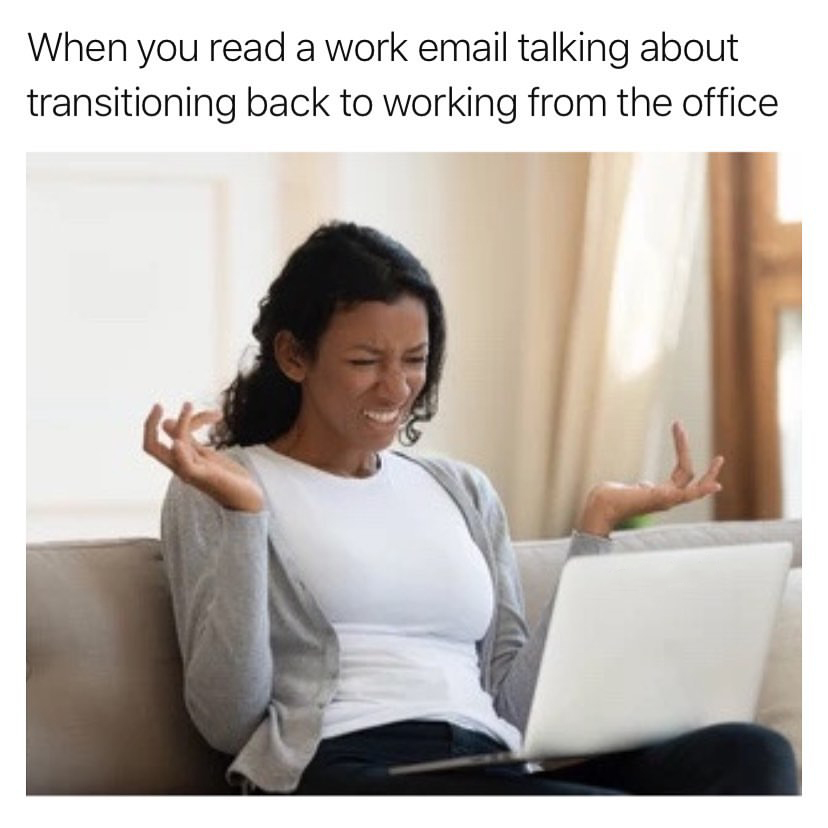
I'm already scheduled to go in tomorrow to do some equipment imaging, but I replied that I would just rip the band-aid off and return to full time in the office starting Monday. Fuck it. I've had my initial vaccine with the second scheduled for the 27th, so at this point I just don't care any more. And frankly at this point I'm back to wishing on an asteroid impact that just puts the human species out of its misery.
Same, Pooh. Same.


